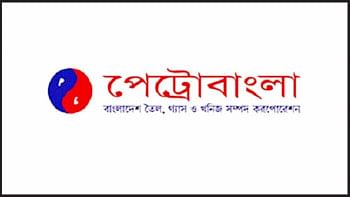Non-aligned Summit: Boost for Iran
The 16th Non-Aligned Summit (NAM) of 120 states will be held in Tehran from August 26 to 31. Iran will thus become chairman of the NAM for the next three years. NAM countries constitute 55% of the world's population.
About 100 countries are expected to participate in the Summit in. Iran's official spokesman, Mohammad Reza Forqani, told a press conference that 41 countries including India will participate at the highest political level, 21 countries will send their foreign ministers, 5 countries their president's special envoys, and two countries at the level of minister other than foreign minister.
The Obama Administration has publicly expressed its displeasure over world leaders attending the Summit. "This is an organisation that we're not a member of. Our point is simply that Tehran, given its number of grave violations of international law and UN obligations, does not seem to be the appropriate place," State Department spokesperson, Victoria Nuland, told reporters.
Washington has put much pressure on Iran to make it give up the most sensitive and advanced part of the technology, which is uranium enrichment, a process used for producing nuclear fuel for power plants. Iran insists that its nuclear programme is peaceful and has no intention of manufacturing nuclear weapons.
According to the Times of Israel, Israeli Prime Minister Benjamin Netanyahu held a recent telephone conversation with United Nation Secretary General Ban Ki-moon and told him that his anticipated trip to Tehran to attend the NAM Summit would be a major mistake even if it was made with good intentions.
The Israeli Foreign Ministry has ordered Israeli embassies to encourage their host countries to not attend or to send only low-level representatives to the Tehran Summit, the Israeli daily Maariv reported.
The holding of the Summit will be seen as big boost for Iran's standing in Asian, African and Latin American countries. It will also re-energise Tehran's relations with Arab countries. For example, Egypt's President Mohammed Morsi will attend the Summit, the first such trip for an Egyptian leader since relations with Tehran deteriorated decades ago.
The visit could mark a thaw between the two countries after years of enmity, especially since Egypt signed its 1979 peace treaty with Israel and Iran underwent its Islamic revolution. Under President Morsi's predecessor Hosni Mubarak, Egypt, predominantly Sunni Muslim, sided with Saudi Arabia and other Sunni-dominated Arab states in trying to isolate Shiite-led Iran.
The trip is no surprise -- it comes days after Morsi included Iran, a strong ally of Syrian Bashar Assad, in a proposal for a contact group to mediate an end to Syria's escalating civil war. The proposal for the group, which includes Egypt, Saudi Arabia and Turkey, was made at the recent Organization of Islamic Cooperation summit in Mecca.
Analysts say a new understanding with Iran would be a big shake-up for a region that has been split between Tehran's camp -- which includes Syria and Islamic militias Hezbollah in Lebanon and Hamas in Gaza -- and a US-backed group led by Saudi Arabia and rich Gulf nations.
Observers say that the NAM has lost its relevance after the end of the Cold War blocs. Given the changed circumstances of the global political environment, the NAM should re-address itself to focus the economic management and social harmony of its members by reducing poverty of their people.
The NAM will have to face the challenge of globalisation. Globalisation and liberalisation of trade have in fact accentuated the gross disparities between the rich and poor countries. For example, in 2000, there were 42 Least-Developed countries in the world but by 2009 the number rose to 50.
Globalisation has also distorted the pattern of trade for the NAM countries. Access to markets of goods from NAM countries to rich industrialised countries would be more beneficial than that of aid.
Furthermore, mobility of labour from NAM countries has been restricted or prohibited while capital is allowed freely to move in and from NAM countries. The NAM countries must seriously devise ways and means to ensure that global communication, migration, investment and trade can bring benefits to them.
NAM must seriously consider South-South Co-operation. This means that increased reliance on the collective resources of the NAM member-countries through diversified and reinforced processes of political, economic and social cooperation will be required to confront the modern day challenges.
Many suggest that NAM has to devise policies and priorities if it wants to play key role at the 21st century. It has to focus the economic management and social harmony for the benefit of their people so that they get access to education, higher quality of life and political freedom.
Furthermore, combating terrorism, pandemic diseases and adverse effects of global climate change, as well as fresh water security, energy and food, among others, are to be accorded top priority through regional and global cooperation.
Another challenge is resolving conflicts or inter-state disputes among themselves. Yet one rarely hears leaders of NAM expressing their firm determination to resolve the disputes or sources of conflicts. A mandatory dispute-resolution mechanism may be considered within NAM to mediate or arbitrate or judicially settle the inter-states conflicts.
Another fact that has dogged the NAM countries is the division amongst themselves, some of them are pro-West, and some of them are anti-West. Many observers say the conference is a gathering of disharmonious voices. The split weakens the NAM as it is unable to speak in unison on core issues.
Finally, NAM has to re-invent itself and direct its energies to remove poverty among its nationals. The days of political rhetoric are gone. Socio-economic development with equitable distribution of national wealth among people should be the main focus of NAM. Unless NAM addresses the formidable challenges of the present day world, the relevance of the Movement will gradually fade away.

 For all latest news, follow The Daily Star's Google News channel.
For all latest news, follow The Daily Star's Google News channel. 



Comments